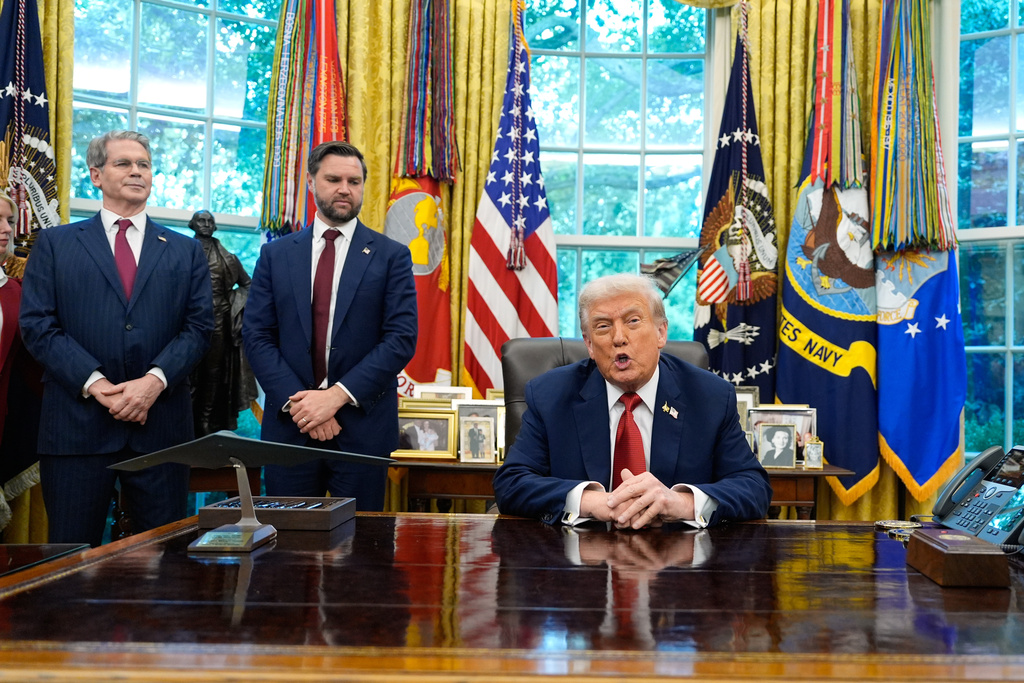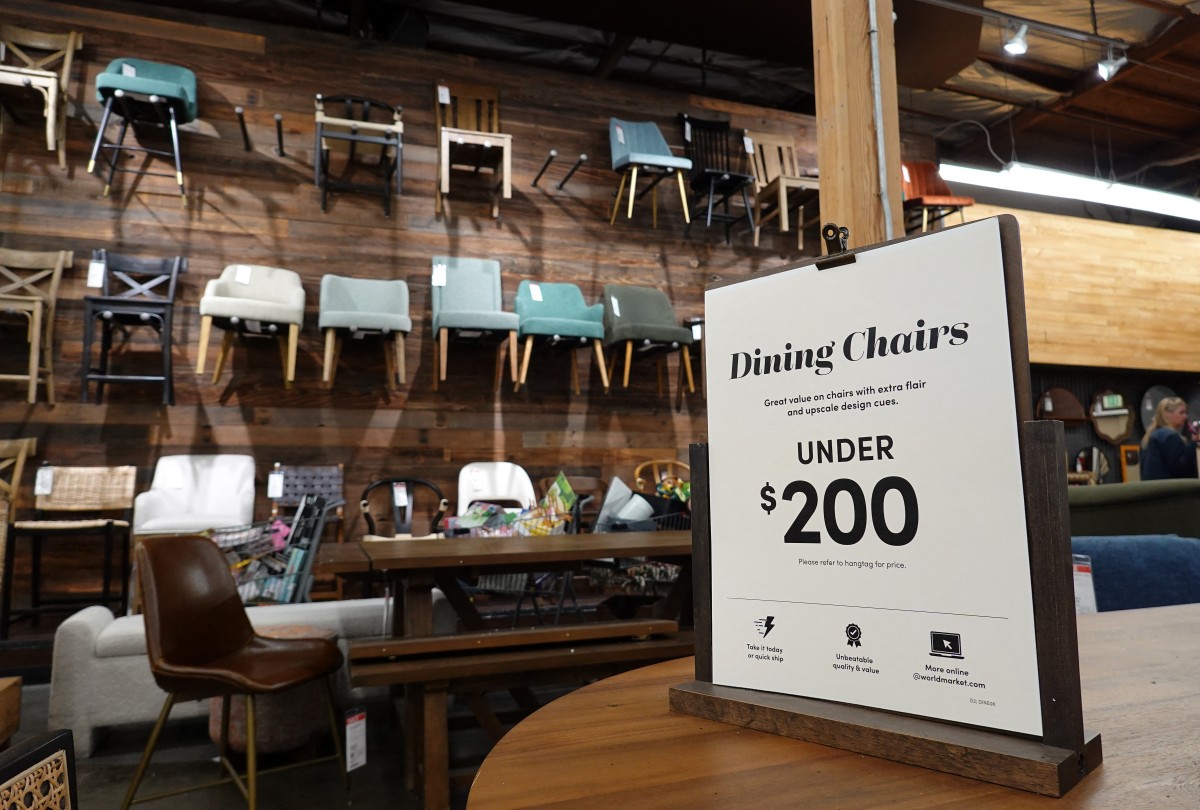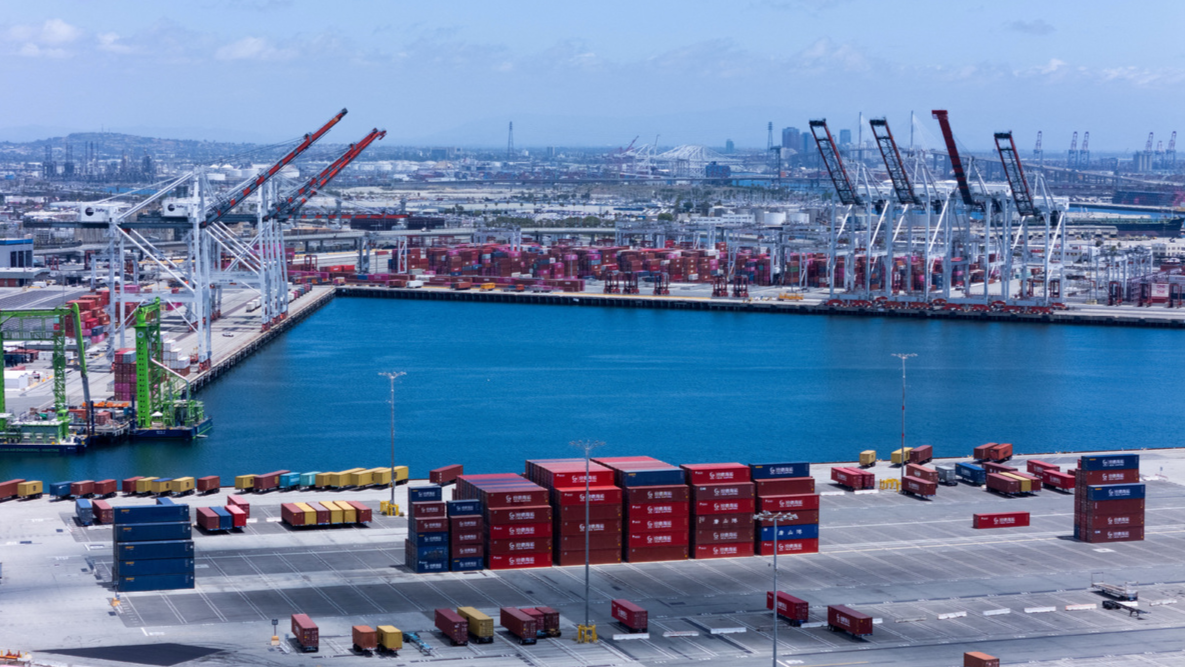
WASHINGTON - President Donald Trump on Thursday unveiled a fresh round of punishing tariffs on a broad range of imported goods, including 100 percent duties on branded drugs and 25 percent levies on heavy-duty trucks, set to come into force next week.
The latest salvo, which Trump said was to protect the US manufacturing industry and national security, follows wide-ranging duties on trading partners of up to 50 percent and other targeted levies on imported products such as steel.
It's the latest upheaval for global businesses already struggling with snarled supply chains, soaring costs and consumer uncertainty caused by Trump's trade war. The barrage has cast a pall over global growth, while the Federal Reserve has said it is also contributing to higher US consumer prices.
Markets wait for details
Asian stocks fell, led by pharmaceutical companies, but European shares recovered from early losses amid uncertainty over how widely some of the duties might apply.
Trump's announcement on Truth Social did not say whether the new levies would be on top of existing national tariffs. Recent trade deals with Japan, the EU, and Britain include provisions that cap tariffs for specific products like pharmaceuticals.
A non-binding preliminary trade deal between the EU and the US agreed to limit tariffs to 15 percent. Trump hasn't yet signed an executive order confirming the agreement.
"The EU and US already have a trade agreement in place; urgent discussions are needed on how to avoid any tariffs on medicines that harm patients in the EU and the US," Nathalie Moll, director-general of the European Federation of Pharmaceutical Industries and Associations, said on Friday.
Japan has an agreement that its tariff rates will not exceed others including the EU, Tokyo's trade negotiator Ryosei Akazawa said.

Drugmakers have been bracing for tariffs
Trump said the 100 percent tariff on branded drugs would only apply to producers that had not already broken ground on US manufacturing plants.
Many drugmakers have announced multibillion-dollar investments in the United States, and Switzerland's Roche underlined on Friday that one of its US units recently started work on a new facility.
Rival Novartis, which has also made a large US investment pledge, did not reply to a request for comment.
ALSO READ: Big pharma fears best-selling drugs in crosshairs of US-EU tariff spat
Switzerland is still discussing a trade agreement with the US and its economy ministry said it was waiting for more details on Trump's latest announcement.
The Pharmaceutical Research and Manufacturers of America, an industry group, said companies "continue to announce hundreds of billions in new US investments. Tariffs risk those plans."
Trump had long threatened higher tariffs on drugmakers and Ireland, where mainly American-owned pharmaceutical factories employ about 2 percent of the workforce, has frontloaded much of its exports to the US in anticipation.
Exports of chemical and related products, including medicinal and pharmaceutical products, leapt 536 percent year-on-year to 23.9 billion euros ($27.9 billion) in the first seven months of 2025, according to Ireland's Central Statistics Office.

Foreign policy tool
Trump also followed through on a pledge to "bring back" America's furniture business, saying he would start charging a 50 percent tariff on imported kitchen cabinets and bathroom vanities and a 30 percent tariff on upholstered furniture.
All the new duties take effect from Oct 1.
"The reason for this is the large scale 'FLOODING' of these products into the United States by other outside Countries," Trump said.
The new actions are seen as part of the Trump administration's shift to better-established legal authorities for its trade actions, given the risks associated with a case before the Supreme Court on the legality of his global tariffs.
The administration has opened a dozen probes into the national security ramifications of imports of wind turbines, airplanes, semiconductors, polysilicon, copper, timber and lumber and critical minerals to form the basis of new tariffs.
Trump this week announced new probes into personal protective equipment, medical items, robotics and industrial machinery. He previously imposed national security tariffs on steel and aluminum and derivatives, light-duty autos and parts, and copper.
Trump has made the levies a key foreign policy tool, using them to renegotiate trade deals, extract concessions and exert political pressure on other countries.
His administration has played down the impact on consumer prices and touted tariffs as a significant revenue source, with Treasury Secretary Scott Bessent saying Washington could collect $300 billion by the end of the year.

Inflation pressure
More than half of the $85.6 billion in ingredients for medicines used in the US are manufactured domestically, with the remainder from Europe and other US allies, the US pharmaceutical trade group said earlier this year.
When it comes to furniture, imports to the US hit $25.5 billion in 2024, up 7 percent from the year prior. About 60 percent of those imports came from Vietnam and China, according to Furniture Today, a trade publication.
"Many of our members were shocked when we heard the news. I think the decision on the additional tariff is unfair,” said Nguyen Thi Thu Hoai from the Wood and Handicraft Association of Dong Nai province, one of Vietnam's largest furniture clusters.
Furniture and wood products manufacturing employment in the US has halved since 2000 to around 340,000 today, according to government statistics.
Higher tariffs on commercial vehicles could put pressure on transportation costs just as Trump has vowed to reduce inflation, especially on consumer goods such as groceries.
Trump said the new heavy-duty truck tariffs would benefit companies such as Paccar-owned Peterbilt and Kenworth and Daimler Truck-owned Freightliner.
The US Chamber of Commerce earlier urged against imposing new truck tariffs, noting the top five import sources are Mexico, Canada, Japan, Germany, and Finland, which pose "no threat to US national security."


